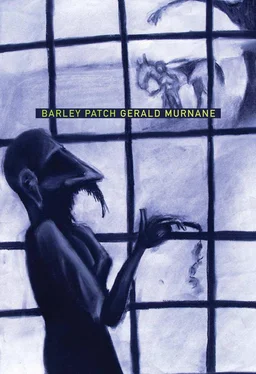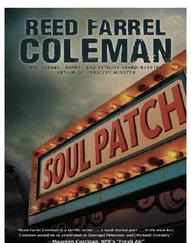Gerald Murnane - Barley Patch
Здесь есть возможность читать онлайн «Gerald Murnane - Barley Patch» весь текст электронной книги совершенно бесплатно (целиком полную версию без сокращений). В некоторых случаях можно слушать аудио, скачать через торрент в формате fb2 и присутствует краткое содержание. Год выпуска: 2011, Издательство: Dalkey Archive Press, Жанр: Современная проза, на английском языке. Описание произведения, (предисловие) а так же отзывы посетителей доступны на портале библиотеки ЛибКат.
- Название:Barley Patch
- Автор:
- Издательство:Dalkey Archive Press
- Жанр:
- Год:2011
- ISBN:нет данных
- Рейтинг книги:5 / 5. Голосов: 1
-
Избранное:Добавить в избранное
- Отзывы:
-
Ваша оценка:
- 100
- 1
- 2
- 3
- 4
- 5
Barley Patch: краткое содержание, описание и аннотация
Предлагаем к чтению аннотацию, описание, краткое содержание или предисловие (зависит от того, что написал сам автор книги «Barley Patch»). Если вы не нашли необходимую информацию о книге — напишите в комментариях, мы постараемся отыскать её.
Barley Patch — читать онлайн бесплатно полную книгу (весь текст) целиком
Ниже представлен текст книги, разбитый по страницам. Система сохранения места последней прочитанной страницы, позволяет с удобством читать онлайн бесплатно книгу «Barley Patch», без необходимости каждый раз заново искать на чём Вы остановились. Поставьте закладку, и сможете в любой момент перейти на страницу, на которой закончили чтение.
Интервал:
Закладка:
At my first primary school, boys were taught only in the lowest three grades. After the third grade, boys went to an all-boys school across the road to be taught by religious brothers. At the primary school, all upper grades consisted of girls only. In the eighth grade, almost every girl was in her fourteenth year. In my first year at primary school, I knew nothing of secondary schools, let alone teachers’ colleges or universities. The girls in Sister Gonzaga’s room were the most senior students of any sort that I had ever seen. I was mostly the pet, or favourite, of my nun-teacher in the first grade, and so I was often sent by her on some or another errand to Sister Gonzaga’s classroom. No university or cathedral or library that I have since stepped into has awed me so much as that hushed classroom would awe me whenever I visited it on some or another hot afternoon. The room seemed cooler than any other in the school, if only because its windows looked between pepper-trees towards the banks of the trickling drain that I knew as Bendigo Creek or because each windowsill had on it a plant-pot from which sparse green foliage hung down. The coolness may have been an illusion, but the quietness of the room always startled me. I seemed to have entered a place where arcane knowledge lay just beyond my reach. The eighth-grade girls, whenever I burst in upon them, seemed either to be absorbing or to be recording such knowledge. Either they were reading from thick books with homemade brown-paper covers that hid the titles and the names of the authors, or they were writing with steel-nibbed pens or even with fountain pens one after another long sentence across line after line in immaculate exercise books. More than that, the girls made gentle fun of me — why, I never understood.
The girls’ teacher seemed to know me as a clever child who was not afraid to speak out. Whenever I visited her room, she would ask me, in the hearing of the whole class, what I took to be a straightforward question. I would give her a straightforward reply, but almost always my reply would cause the eighth-grade girls to laugh. They laughed not raucously and overlong, as my own classmates laughed, but briefly and discreetly. A sort of whinnying sound rose from the girls and then ceased abruptly at a look from Sister Gonzaga. I would always leave the room not only baffled by my having amused the girls but hurt by their having rejected me, because my speaking frankly in front of them had been, in its own way, a declaration of love.
Whenever I stood in front of the rows of eighth-grade girls, I was not bold enough to look at any one face. I was therefore spared the sight of some or another girl that I saw every day in the playground and disliked for her features or her manners. I looked always above the heads of the girls and towards the rear wall of their classroom, so that any one of the throng of pale blurs in the lower field of my vision might have been the face of the girl that I never saw in the playground because she stayed in a quiet corner with her few softly-spoken girlfriends or because she spent most of her lunch-hour reading in her classroom: the girl who was far too old for me to have as my girlfriend but who might have seen far into me while her teacher made fun of me, so that I could rely in future on her image in my mind. This image would have been of a tall girl, almost a woman in my estimation, who wore the same intimidating navy-blue tunic and white blouse that her classmates wore but whose face told me she did not resent my interest in her — my seeing her in my mind whenever I needed to look to a female presence for inspiration.
I understood that the connection between the older girl and myself existed only in my daydreams, but I sometimes supposed that something might have developed between us if only her florid-faced teacher had not urged her girl-pupils often to look away from their shabby houses and their dusty streets and to dwell on the images that came to their minds whenever they read their books or said their prayers. When some of my classmates told me that children from the nearest State school used the nickname “Beetroot” for our Sister Gonzaga, I pretended to be shocked but I was secretly pleased.
Several years after I had last seen the red-faced nun, and a hundred miles away from the provincial city where she had made fun of me in front of her decorous pupils, I would have been reading, in the first of the serialised excerpts of Brat Farrar , some or another paragraph in which the narrator hinted yet again at the virtues of the character Aunt Bee when I first gave to that character the nickname that I have used for her ever since: Aunt Beetroot.
A bowl of beetroot stood on the table every Sunday afternoon in the kitchen of the comfortable house in the eastern suburb of Melbourne where an older sister of my mother lived with her husband and their children, my cousins, who were mostly girls or young women. Many other plates and bowls stood on the same table. My aunt and her family had a so-called roast dinner every Sunday at midday. The plentiful remains of the roast lamb or beef were left to cool on the table. In the early afternoon, the first of the regular Sunday-visitors would arrive at the house. My mother and my brother and I were occasional visitors. By mid-afternoon, all the women present would have begun to prepare in the kitchen the evening meal for the dozen or more persons present: the Sunday tea, as everyone called it. The women at the kitchen table talked continually, but if any of them saw me at the door trying to overhear them, the kitchen would become silent. My mother would tell me sternly to go outside and play.
Many times during my childhood I was told to go outside and to play in some or another garden while my mother and her women-friends talked indoors. To play in such places was impossible. The sort of game that I played in my own backyard needed weeks of preparation: I had to set up a farming property under each shrub and then to mark out the roads that crossed my rural district and finally to choose the names for the husbands and wives who lived at each property. (I chose the surnames either from among the names of trainers and jockeys in the Sporting Globe or from the names of film stars in advertisements in the Bendigo Advertiser for films currently showing. The given names I chose from a private store that I kept always in mind; none of these names belonged to any scabby or poorly dressed classmate of mine, and each of them when I pronounced it aloud gave rise to a sort of imagery that I might have struggled to explain on this page if I had not read by now the work of fiction by Marcel Proust the English title of which is Remembrance of Things Past and an early section of which, titled “Place-Names: The Place,” contains a long passage in which the narrator reports that certain words gave rise in his mind to certain images far more elaborate and consistent but in essence similar to the images that arise even now in my mind when I recall myself crouching beneath a tamarisk tree or a lilac tree or a lion’s-paw shrub and assigning to persons who were hardly yet visible in my mind the names that would make them more so because the vowels or the consonants of those names connoted pale or freckled or sun-browned skin or eyes of a certain colour or even a distinctive voice or bearing.)
Whenever I was sent out of the comfortable house mentioned in the previous paragraph, I went first to the small front garden and then to the fernery on the shaded side of the house and finally to the small back garden. On my way from the kitchen to the front garden, I passed the closed door of the room that was my uncle’s office. He was the only man I knew who had a room of his own in his own house, and for this I envied him, especially on Sunday afternoons when the crowd of women was in the kitchen. Once, on a weekday, I had looked into the office when the door was ajar and my uncle was working in his garden. The room was surprisingly small and bare. I had hoped to see shelves of books, but the only furniture was a desk, a cupboard and a chair. (My father had once said to me scornfully that none of the family in that house had ever read a book.) On the desk were several magazines with coloured covers. The topmost was called Glamour and had on its cover a picture of a young woman in a two-piece bathing-costume. My uncle was a bookmaker and well-off, as my mother often told me. He earned most of his money on Saturdays and was often at leisure on other days. He cultivated standard roses in perfectly rectangular beds, masses of flowering annuals in perfectly circular beds, and a dozen sorts of fern and palm in his dim fernery. At the end of his back garden he kept canaries in aviaries: one large enclosure each for the males and the females, and several smaller cages for breeding pairs. I never saw him indulging his other main interest, but it was well known among his friends and relatives that he left his wife and six children at home on three evenings of every week of the year while he sat alone and watched films in one or another of the many picture theatres in his own or a neighbouring suburb.
Читать дальшеИнтервал:
Закладка:
Похожие книги на «Barley Patch»
Представляем Вашему вниманию похожие книги на «Barley Patch» списком для выбора. Мы отобрали схожую по названию и смыслу литературу в надежде предоставить читателям больше вариантов отыскать новые, интересные, ещё непрочитанные произведения.
Обсуждение, отзывы о книге «Barley Patch» и просто собственные мнения читателей. Оставьте ваши комментарии, напишите, что Вы думаете о произведении, его смысле или главных героях. Укажите что конкретно понравилось, а что нет, и почему Вы так считаете.












